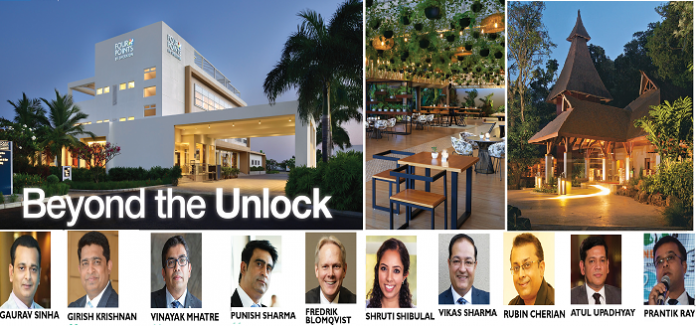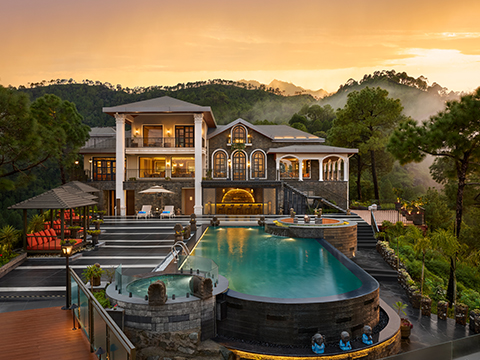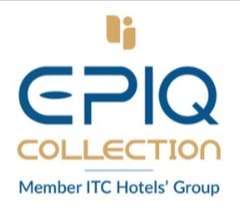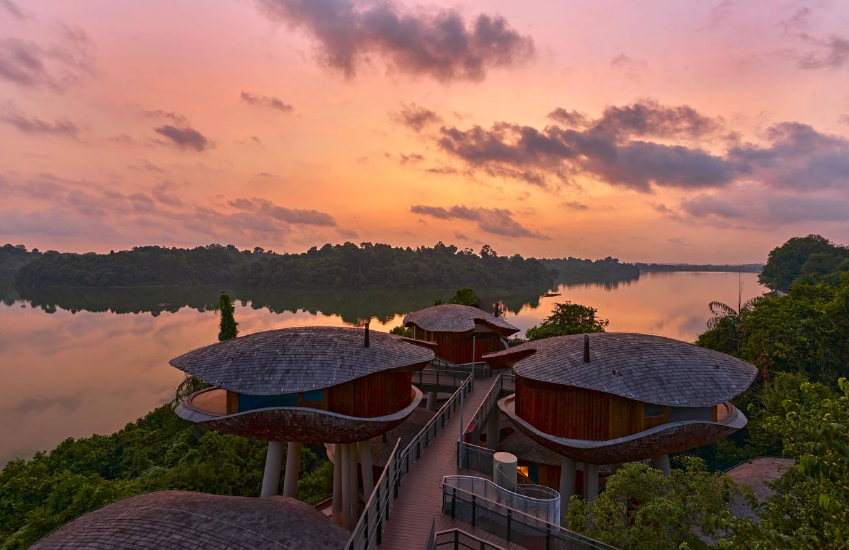In June, Unlock 1.0 permitted businesses including hotels to reopen in a phased manner. Since then two more Unlocks have further opened up the hospitality sector. Let’s check out how the Unlocks worked for the hotel sector.
Steena Joy
The world as we knew it before COVID-19 has forever changed. It has taught the travel and tourism industry to reinvent their working SOPs and rethink the strategy to just stay afloat. The resilient hotel industry is now faced with changes in consumer travel patterns and behavior and have to accordingly work to include these in their operational strategies.
Gaurav Sinha, Director of Operations, JW Marriott Hotel Bengaluru says, “A positive outlook towards business has made us look beyond the conventional way of opportunity. We are seeing development in business – social events and staycations as major contributors. M!CE will take longer than expected and uncertainty of travel can continue. For large form of events we have seen some possible light with enquiries for Q4 of 2021.”
Speaking about the challenges, Sinha adds, “Business continuity is a severe challenge. Our first effort is to gradually sustain business and employment of our people. The company is taking all possible measures to hold on to talent and their well-being while balancing the business for stakeholders. We still have a long way to go. However, the lockdown has certainly opened a new way of looking at business – controlling the operating cost while sustaining the longevity of business.”
Girish Krishnan, Hotel Manager, Four Points by Sheraton Mahabalipuram Resort & Convention Center observes that the industry has faced a major loss in terms of mass-scale cancellations and reduced traffic. He says, “Some of the short-term challenges will be low expenditure power but the long-term challenges will be a shift in consumer behaviour, consumption patterns, perception, expectations and trends. Accordingly, we are working on the pricing strategies and on understanding the perception during this time, we have anticipated a change in the saving patterns and the demand for experiences that are value for money. The focus is to shift from an anxious situation to a positive approach.”
The positive aspect is the decluttering of each sector to form a qualitative stage that will last long; redefining safety, sustainability and productivity; understanding the intensity of demand; evaluating the emerging opportunities; and building futuristic developments. “The awakening of a new informed era will have huge values for qualitative assurance, and that will help us to bring back the loyalty and trust of our guests,” he adds.
Four Points by Sheraton Ahmedabad has seen a marginal increase in the number of travellers coming into the hotel – people travelling for work, transiting through the city to other destinations, families staying over weekends to take a break from routine and rigorous schedules they followed during the lockdown. The hotel is also seeing dine in inquiries. Speaking about the challenges, Vinayak Mhatre, Hotel Manager, Four Points by Sheraton Ahmedabad points out, “Challenges that continue to impact the business are limited travel options from feeder markets like Mumbai, New Delhi and other metro cities in the country. Current limitations on international travel will impact the overseas business that was coming into the hotel.” The hotel has seen some inquiries for last quarter of 2020 and first and second quarter of 2021 coming in. Mhatre feels that Clean and Hygienic Stays complemented with Innovative and Safe Dine in options would be the key to business in the months to come. Leaner operative models without losing out on delivery efficiencies would help the industry to revive faster, he adds.
Punish B Sharma, Vice President – Operations, The Fern Hotels & Resorts opines that it’s still early days as far as the hospitality industry is concerned. He says, “The industry got the permission to open recently and that too with limitations. If I take all these things into perspective, I will say that Meluha, The Fern is doing pretty decent. We had a few guests who were staying with us even during the lockdown. We also got guests who stayed with us as a part of self-quarantine. With the unlocking we have seen some more activity on the rooms front, however it is going to take some time to get good numbers. We have a huge locational advantage. A lot of corporates operate from Hiranandani gardens and we have a captive audience. This puts us in a better situation.”
His only concern area in the near future is actually the M!CE segment. “The job in our hands right now is to concentrate on the room sales. Once we start getting good occupancies, I am sure the M!CE business will also pick up,” he affirms. His thoughts on the road to recovery? “I am sure that the occupancies are going to steadily get momentum. We have been getting good responses. Our new operational standards are being appreciated by guests. All of us as a team have to pull up our socks and put our best, the rest will follow,” he says.
Fredrik Blomqvist, General Manager, Four Seasons Hotel Bengaluru agrees. “Without any doubt, the business pace is slow and this recovery journey is going to take time – we need to be patient. We are currently focusing a lot on internal training and ensuring our revised operating standards have been implemented accordingly.” Four Seasons has launched Lead With Care, an enhanced global health and safety programme that is being implemented at properties worldwide, including at Four Seasons Hotel Bengaluru. “Food & Beverage is very much the front and centre of the game and that has been a very positive thing for us. The key challenges are that we are unable to see the light at the end of the tunnel and it will take time to restore the confidence in our travellers,” Blomqvist adds.
Four Seasons has implemented an incentive driven programme for its sales teams to benefit by promoting and selling each other across the region. This can also be seen on social media with the brand’s #FSAsiaStories hashtag where different Four Seasons hotels are promoted, one by one, with a view to entice guests to dream up their next travel idea. As for M!CE, he feels that the sector needs to be prepared for a marathon and not a race – it will take time and small steps will be taken to get where the sector wants to be, but only over time. Blomqvist believes that this a great time to ideate and think out of the box like transforming al fresco spaces into meeting venues, tapping the staycation segment, crafting great banquet menus, improvising on takeaway offerings. “We will have to look through a much wider lens and it will serve us well to promote Bengaluru as a destination, and not just Four Seasons Hotel Bengaluru, to our global guests,” he suggests.
Shruti Shibulal, CEO and Director, Tamara Leisure Experiences informs that the nationwide lockdown and the travel restrictions it brought with it was a very challenging period for her group. “However, we are a strong and resilient organisation, with an incredible team of dedicated and committed associates, chefs, and operations managers. We are slowly seeing an increase in intra-state travellers visiting our properties. We are hopeful that, in time, inter-state travellers will also return,” she says.
The biggest challenge the hospitality industry will face now and in the coming months will be to establish trust amongst clientele. “We are aware that some things have forever changed, and it will be imperative to ensure safety measures and protocols to suit the new reality we are faced with,” she says. As for M!CE, there has been movement with wedding bookings at the brand’s Trivandrum property, O by Tamara. Wedding parties have been choosing upscale hotel venues over auditoriums for elegant and intimate wedding celebrations. Going by an increase in enquiries for events such as these, Shibulal expects a better turnout in the coming months.
Courtyard Surat is fortunate to run a full house during the March to July 2020 period and still counting. “We were able to secure business from a local company of Surat, which protected our top line. With stringent initiatives put in place and controlled bottom line, we were amongst the few hotels in India to achieve a high GOP of 65 per cent in April and May; and, 60 per cent in June and July,” says Vikas Sharma, General Manager, Courtyard by Marriott Surat. This helped Courtyard Surat to protect associate jobs and their salaries and thereby has resulted in a highly motivated workforce.
He opines that M!CE business will still take some more time to start showing results. “The new normal will be the virtual meetings. Unfortunately, with a cap of 50 attendees, maintaining physical distancing and restriction on buffet services, it will never give us the magnitude and class that the M!CE segment is known for,” he affirms.
The road to recovery is expected to be long; it could take 12-18 months to come anywhere close to pre- COVID numbers. Domestic tourists will primarily lead this. International tourists are not expected before the early part of 2021. Any good news on the vaccine front will certainly provide a big boost. “We have to now, as industry professionals, start looking at the hotel as a business enterprise as the new pillars of hospitality in my view will be associate, guest, cash,” he states.
Being in proximity to the airport, Novotel Hyderabad Airport had never shut operations completely. The hotel had few international long stay guests who were unable to travel back to their countries. Rubin Cherian, General Manager, Novotel Hyderabad Airport says, “Since Unlock 1.0 we have seen a steady rise in our business. Nearly 77 per cent of our guests are domestic, thus our dependence on the international inbound traffic is limited. The hotel has by now hosted a healthy number of Indian weddings (respecting the 50 guests gathering rule) and we have also been getting requests for rooms from airlines dealing in cargo and private jets for their crew. We were able to capture this business as we have an advantage of being close to the airport.” Cherian adds, “We are seeing a pattern where corporate are considering smaller gatherings currently, however we anticipate that bigger M!CE events would take some more time to come back to their full potential.” He believes that while economy & midscale segment hotels will be the first to recover as travellers are going to be very price sensitive in such times, they would also like to patronise brands which have a strong global presence.
Atul Upadhyay, Vice President Operations, Pride Hotels feels that the biggest and foremost challenge while reopening the business will be the implementation of the new standards, which will require developing a new set of skills around the management of cleaning, disinfection, and inspection. “The current crisis has also taught us the value of being prepared for pandemics. This means having policies and practices ready to go when in need will also be another challenge,” he points out.
He says that M!CE will take a little more time to recover but once it does, we are hoping to get higher demand as some of the international planned events will shift to India due to travel restrictions. He believes regaining guest’s confidence should be the first step in overcoming the crisis. “Communication will play a lead role in reaching out to the guests and needs to be done subtly. Gentle, so it reassures the guest of the safety in their decision to start planning and travelling again,” he reiterates.
Prantik Ray, Area General Manager, Sayaji Indore advises, “The prime focus should be on guest safety & sanitisation. Stick to brand USP, customise packages & promotions, focus on transit travellers, engage with online channel partner, target less impacted corporate bodies are a few brand strategies to boost occupancies.” He opines that recovery will be prolonged by at least three to four quarters with normalcy around two years away. Small scale business travellers will recover first whereas group or M!CE will be the last to recover.
Vipul Tripathi, DGM–Operation, Effotel Indore says, “COVID-19 has severely impacted the hospitality sector in Q2 & Q3 2020. As far as Indore is concerned, even after the Unlock, restaurants are not being operational, only room business is operational. Whilst hotels in certain cities opened in early June, guests have not yet returned. As a market, Indore majorly is driven by corporate movement and we believe that demand in Indore will take time to recover and it will only happen when major corporates allow their employees to travel through their revised travel advisories.”
There is no M!CE movement happening in Indore city as of now and Tripathi believes that it doesn’t seem likely in the near future. There has been significant decline in occupancy, average room rates (ARR) and also revenues. But he opines that, “There will be definitely be a boom in domestic tourism as people will choose destinations within India as opposed to international holidays. Also, as Indore is a city between two Jyotilingas (Ujjain & Omkareshwar), we are planning for some value for money pilgrim packages where guests can visit these Jyotilingas in a very safe and secure manner.”
Gaurav sinha
“We are controlling the operating cost while sustaining the longevity of business”
girish krishnan
“The awakening of a new-informed era will have huge values for qualitative assurance”
vinayak mhatre
“Leaner operative models without losing out on delivery efficiencies would help revival”
FREDRIK blomqvist
“F&B is very much the front & centre of the game & that has been a positive thing for us”
punish sharma
“Occupancies are going to steadily get momentum. We have been getting good responses”
Shruti shibulal
“We are slowly seeing an increase in intra-state travellers visiting our properties”
Vikas sharma
“We were amongst the few hotels in India to achieve a high GOP of 60% in June and July”
Atul upadhyay
“Communication will play a lead role in reaching out to the guests and needs to be done subtly”
Rubin cherian
“Bigger M!CE events would take some more time to come back to their full potential”
Prantik Ray
“Recovery will be prolonged by at least three to four quarters with normalcy around two years away”








